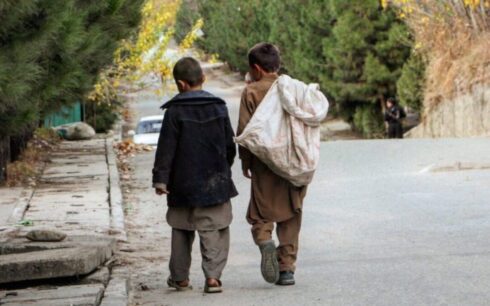KABUL, Afghanistan — The International Rescue Committee (IRC) warned this week that U.S. funding cuts have forced the suspension of life-saving humanitarian services in Afghanistan, putting millions at greater risk amid one of the world’s most severe humanitarian crises.
In a new report, the IRC said the reduction in American support had already led to the closure of critical programs providing healthcare, malnutrition treatment, vaccination, clean water access, and education to some of Afghanistan’s most vulnerable populations, particularly women and children.
According to the report, Afghanistan is now home to more than 23 million people in urgent need of humanitarian assistance. The IRC said restrictions imposed by the Taliban — particularly on women’s rights to education, employment, and healthcare — have further deepened the crisis, with female-headed households especially affected.
Since the budget cuts, the IRC said that more than 700,000 people, including internally displaced families, have lost access to humanitarian services previously provided by the organization.
Treatment for over 15,000 children suffering from severe malnutrition has been suspended.
Access to healthcare for approximately 14 million Afghans has been drastically reduced.
The report included personal accounts illustrating the impact of halted services across Afghanistan.
In Bamiyan province, the family of Mohammad Ali credited IRC mobile health teams with saving their children’s lives through emergency care and medicine. Those services have now been suspended.
In Logar province, community-based education programs previously offered schooling to thousands of girls. Two young teachers, Hajira and Marsal, shared their experiences of leading classes under the slogan, “Education is the right of every human being, especially girls.” According to the IRC, an estimated 300,000 children have now lost access to education because of funding shortfalls.
In Laghman province, Azim and his family, who lost everything in a devastating flood, had survived with the help of IRC-provided emergency cash assistance. “We lost everything we had. The IRC’s support saved us,” Azim said.
The IRC warned that unless international funding — especially from the United States — is urgently restored and expanded, millions of Afghans could face catastrophic conditions.
The organization called on the global community to provide sustainable financing to prevent a total collapse of humanitarian services in Afghanistan. It also urged individuals worldwide to contribute directly, emphasizing that even small donations could have a life-saving impact.
“The situation is critical,” the IRC said. “The people of Afghanistan cannot be abandoned.”





